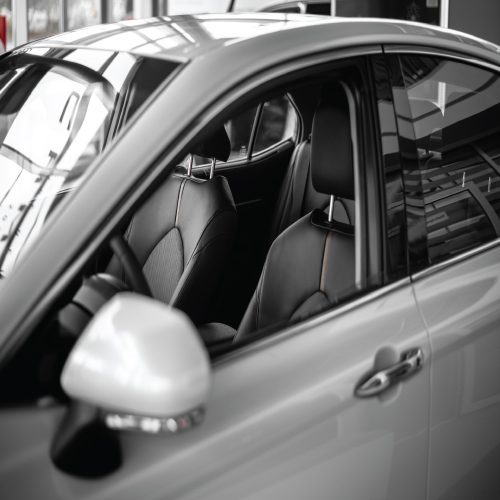
Can You Cancel Auto Insurance on a Financed Car?
Can You Cancel Auto Insurance on a Financed Car?
When you purchase a new car, you are generally issued a requirement by the lender to carry a certain amount of car insurance. This requirement is issued to protect the lender’s investment in case an accident damage the car.
You must carry this insurance for as long as you are financing the vehicle. If you cancel your coverage, you will be notified of a breach of contract, after which the lender may add the cost of full coverage car insurance to your loan. This forceful addition of insurance by a lender is called force-placed coverage.

How Much Insurance Do Lenders Require?
Usually, this is full coverage, which is higher than the state-required minimums. Full coverage car insurance required by lenders typically includes:
-
Comprehensive Coverage: Comprehensive coverage provides compensation for damages to the vehicle caused by fire, wind, hail, lightning, smoke, theft, vandalism, and other incidents not involving a collision.
-
Collision Coverage: Collision coverage provides compensation for damages to the vehicle due to collision with another vehicle or object.
-
Liability: Liability insurance covers expenses related to bodily injury and property damage the driver may cause while operating the vehicle.
-
Medical Payments Coverage: Medical payments coverage provides compensation for medical bills the driver and their passengers may face after an accident, no matter who is at fault.
-
Uninsured/Underinsured Motorist: This coverage provides compensation for accidents involving a driver not carrying insurance at the time of the accident.
When Can You Drop to Basic Liability Insurance?
Once your car is paid off, you may no longer be required to carry full coverage by your dealership. You should take careful consideration before dropping your insurance. With just minimum liability, you will not have coverage for damages to your car or injuries to you and your passengers. This means that after an accident, you could be looking to pay expensive repairs and medical bills out of pocket.
It is generally recommended that drivers don’t consider dropping their full coverage insurance until the value of the car is less than it would cost to insure the vehicle. Older vehicles depreciate in value, so some insurers will not insure a vehicle that is worth less than the cost of insurance. If it would cost less to repair or replace your vehicle out of pocket than it would insure it, you may want to have only minimum liability insurance. Call us today at (915) 599-2900 or visit www.MtFranklin.com to see how we can help you.
